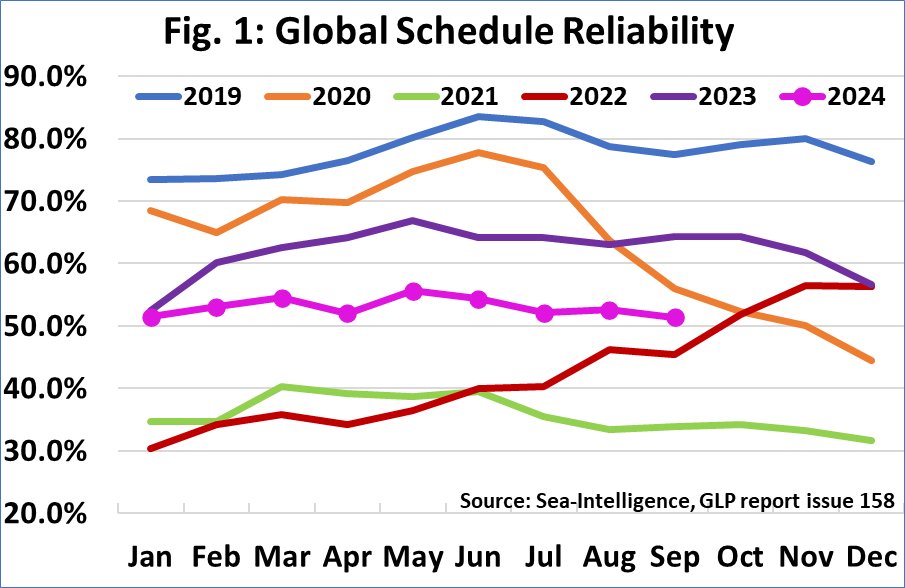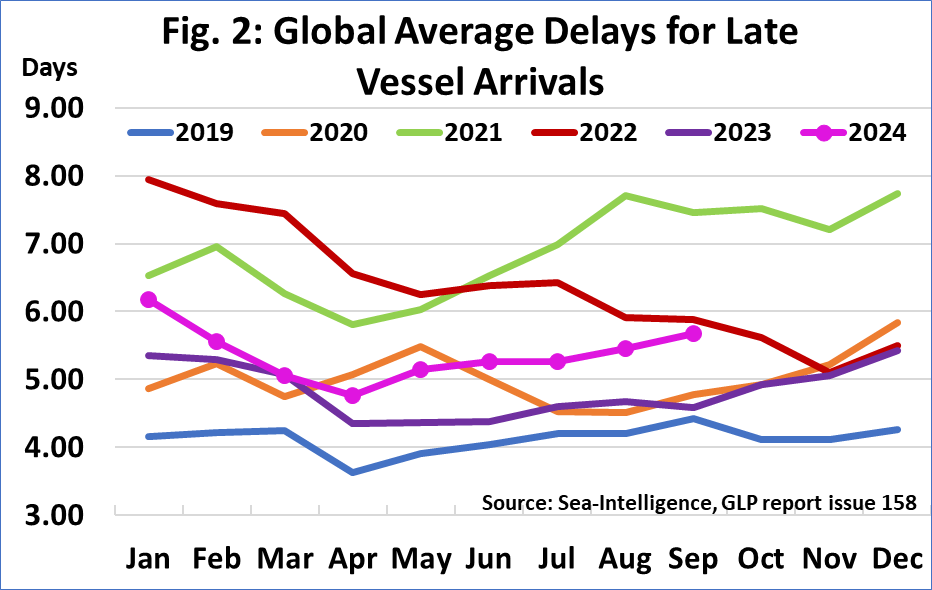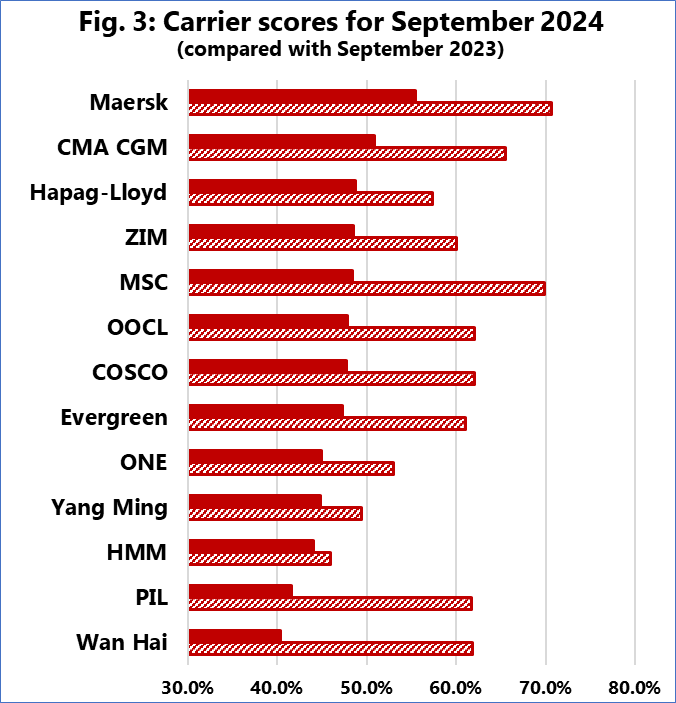Global shipping schedule reliability dipped in September as the average carrier delay increased to the third-highest figure for the month, only surpassed by pandemic highs of 2021-2022.
Sea Intelligence said in a new report that schedule reliability declined by 1.2 percentage points month-on-month (M/M) to 51.4%.

It added that while schedule reliability in 2024 has stabilised within the 50%-55% range, it's been on a slight downward trend since the May peak.

"The low levels of volatility in schedule reliability in 2024 do give shippers a relatively good idea of what to expect M/M," said Alan Murphy, CEO of Sea-Intelligence.
For September, Sea-Intelligence noted that the average delay for late vessel arrivals increased by 0.21 days M/M to 5.67 days.
"This is the third-highest figure for the month, only surpassed by pandemic highs of 2021-2022," Murphy said.
For the month, Sea Intelligence noted that Maersk was the most reliable top-13 carrier in September 2024, with a schedule reliability of 55.5%.
CMA CGM followed with schedule reliability of 50.9% as the only two carriers above the 50% mark. The remaining 11 carriers were all in the 40%-50% range.
Meanwhile, Wan Hai was the least reliable, with 40.4% schedule reliability.

During the period, the report said only four of the top 13 carriers were able to record an M/M improvement in schedule reliability in September 2024, with PIL recording the largest increase of 4.5 percentage points and HMM recording the largest decline of 7.8 percentage points.
"On a Y/Y level, none of the top 13 carriers saw an improvement in schedule reliability, with MSC and Wan Hai recording the largest decline of -21.5 percentage points each," Murphy added.